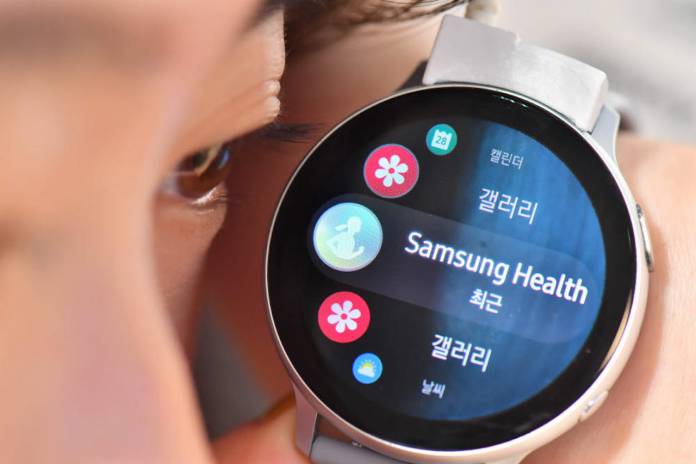
Diabetes has always been a big problem but in the next few years, we may also see a steady increase as people get less exercise and adopt a poor diet due to lockdowns. Diabetics have to regularly check their blood sugar so they know what dose of insulin they would need but the device they currently use require a bit of blood. If rumors are to be believed, Samsung and Apple are now both working on bringing a non-invasive glucometer. This will supposedly come with the upcoming Samsung Galaxy smartwatch to be released later this year.
According to ETNews, this feature will appear in one of the new Galaxy smartwatches that Samsung is working on. The device will be either the Samsung Galaxy Watch 4 or Samsung Galaxy Watch Active 3. They will probably use Raman spectroscopy which uses a laser light to determine the amount of glucose in your blood. They have been working with the Massachusetts Institute of Technology and have published the results of a study using this technology.
The wearable market has been improving its healthcare features, going beyond just activity tracking the past few years. We’ve seen blood pressure and ECG measurement functions added to a lot of devices after certifications from respective food and drug safety government organizations. Blood glucose measurement technology has to be more precise and accurate as this can seriously affect the life of a diabetic. Having this tech on a smartwatch will be a relief for those who found drawing a bit of blood several times a day too stressful.
Samsung will reportedly be releasing three new wrist-worn wearable devices during another Unpacked event later this year. We don’t know yet if all three devices will be carrying the blood sugar measuring technology or if it will just be the Samsung Galaxy Watch 4 or the Samsung Galaxy Watch Active 3 or something new altogether. Apple will also reportedly be applying this tech to their Apple Watch 7 so it will be a matter of who announces it first.
There are currently 25 million insulin-dependent diabetics as per the World Health Organization so this will be pretty useful. The blood sugar measuring technology can also be applied to other medical conditions beyond diabetes so it would be interesting as well to see what else we can do with it.









